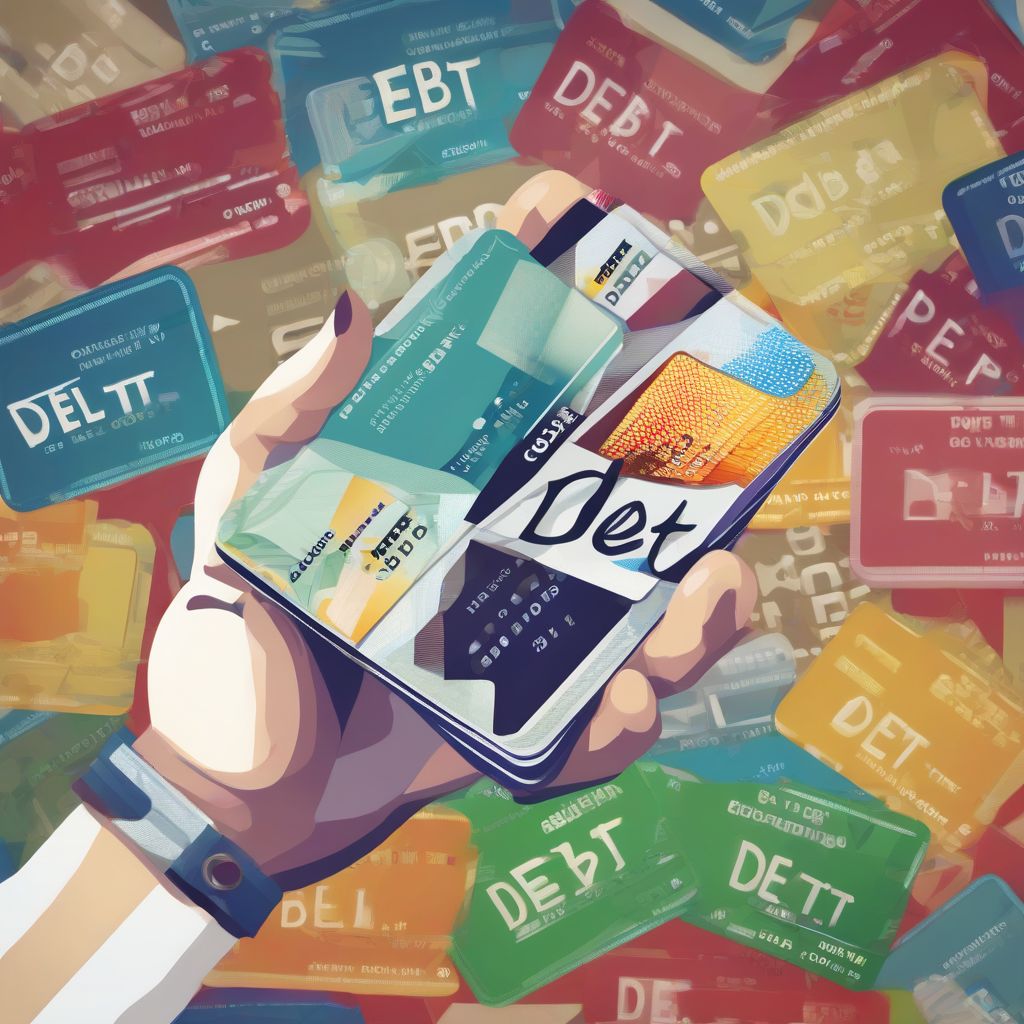Imagine this: You’re drowning in high-interest debt, juggling multiple payments, and your credit score is less than ideal. It feels overwhelming, right? Don’t worry, you’re not alone. Many people struggle with managing debt, especially with a lower credit score. The good news is there’s a potential solution: debt consolidation.
Debt consolidation can help you simplify your finances by combining multiple debts into a single, manageable monthly payment. But what if you have bad credit? This guide will explore the ins and outs of debt consolidation with bad credit, offering practical advice to help you regain control of your finances.
Understanding Debt Consolidation and Its Importance
What is Debt Consolidation?
In simple terms, debt consolidation involves taking out a new loan to pay off several existing debts. This leaves you with just one monthly payment, ideally with a lower interest rate and better terms. Imagine streamlining multiple credit card bills, personal loans, or even medical bills into one manageable payment. That’s the power of debt consolidation.
Why is Debt Consolidation Important?
Debt consolidation offers several potential benefits, especially for individuals with bad credit:
- Lower Interest Rate: Potentially secure a lower interest rate on your consolidated loan compared to your existing high-interest debts.
- Simplified Repayment: Combine multiple payments into a single monthly payment, making it easier to track and manage.
- Improved Credit Score: Consistent, on-time payments towards your consolidated loan can gradually improve your credit score over time.
Can You Consolidate Debt With Bad Credit?
While having good credit increases your chances of qualifying for favorable consolidation loans, it’s not impossible to consolidate debt with bad credit. Here’s the catch: you may need to explore alternative options and be prepared to potentially accept higher interest rates or less desirable terms than someone with a good credit score.
Options for Debt Consolidation with Bad Credit
1. Secured Loans
Secured loans, like home equity loans or loans secured by a vehicle, require collateral. This means you’re pledging an asset (your home or car) as security for the loan. While this can be a viable option to get approved with bad credit, be cautious: defaulting on the loan could put your asset at risk of being seized by the lender.
2. Unsecured Personal Loans
Even with bad credit, you might qualify for an unsecured personal loan from certain lenders. These loans don’t require collateral but typically come with higher interest rates for borrowers with lower credit scores. Be sure to shop around and compare offers from various lenders to find the best possible rate.
3. Debt Management Programs
Consider enrolling in a debt management program through a reputable credit counseling agency. These programs work with your creditors to negotiate lower interest rates and create a manageable repayment plan.
4. Balance Transfer Credit Cards
If you have a smaller amount of debt, a balance transfer credit card with a 0% introductory APR period could provide temporary relief. However, be mindful of the balance transfer fees and make sure to pay off the balance before the promotional period ends to avoid accruing high interest charges.
suckhoetuoitre.com/wp-content/uploads/2024/08/credit-card-debt-consolidation-66b6e5.jpg" alt="Credit Card Debt Consolidation" width="1024" height="1024">Credit Card Debt Consolidation
Steps to Consolidate Debt With Bad Credit
-
Check Your Credit Report: Before applying for any consolidation loan, review your credit report thoroughly for errors and inaccuracies. You can obtain a free copy from each of the three major credit bureaus (Equifax, Experian, and TransUnion) annually.
-
Assess Your Budget: Analyze your income and expenses to determine how much you can realistically afford to pay towards debt consolidation each month.
-
Shop Around and Compare Offers: Don’t settle for the first offer you receive. Compare loan terms, interest rates, and fees from multiple lenders, including banks, credit unions, and online lenders.
-
Read the Fine Print: Before signing any loan agreement, carefully review the terms and conditions, including interest rates, fees, and repayment terms.
-
Make Timely Payments: Once you’ve secured a debt consolidation loan, prioritize making your payments on time. This not only helps you avoid late fees but also contributes to improving your credit score over time.
Conclusion
While consolidating debt with bad credit can be challenging, it’s not impossible. By exploring your options, comparing offers, and making a plan for responsible repayment, you can take a proactive step towards regaining control of your finances and working towards a brighter financial future. Remember, knowledge is power, and taking the first step is always the hardest.
Do you have any other questions about debt consolidation or managing your finances? Share your thoughts and experiences in the comments below. Let’s learn and grow together! Don’t forget to share this article with anyone who might find it helpful.

